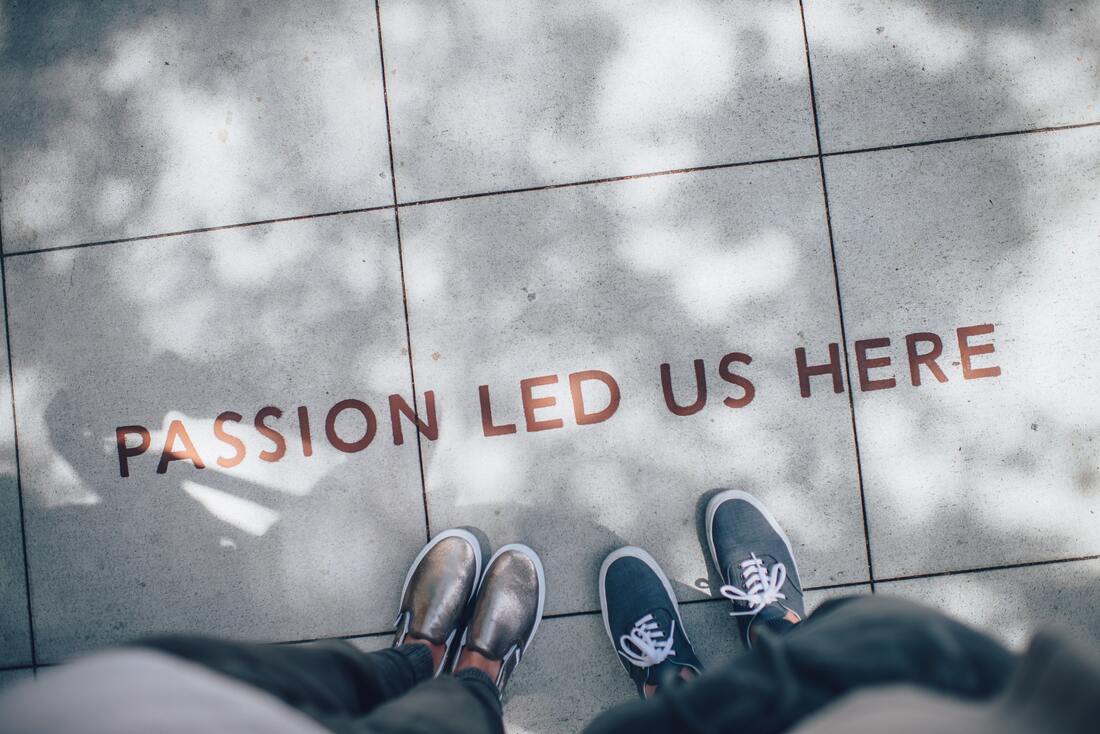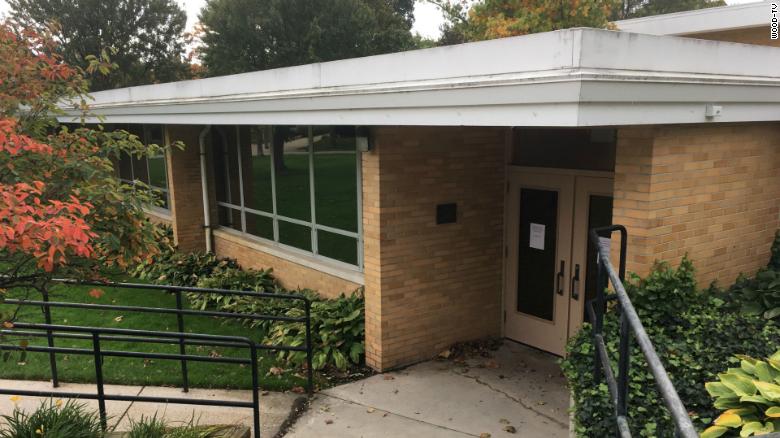|
At our October 2019 meeting, the Grand Rapids Association of Pastors were pleased to welcome two speakers: Kathi Harris, the Census Coordinator for the City of Grand Rapids, and Alison Colberg, the Director of the Micah Center. Kathi Harris sees her work with the Census as a natural extension of her work with get-out-the-vote campaigns: “Everyone has the right to vote and everyone has a right to be counted.” Her goal is to get 100% of the people in Grand Rapids counted. Ten years ago, they estimated that 75-77% of the population was counted, and she’s determined to “find that other twenty-five percent!” This is important to the community because we get funds for services depending on how many people are in our community. Harris recognizes that this will be a difficult task because of federal policies and some communities' resulting fears about immigration status and ICE. She was clear that, “there are 9 or 10 questions on the Census and none of them are about citizenship. They’re all just basic information. And it’s against the law for enumerators to share any of your information.” The city is prepared to do everything it can to address people’s fears. They have four ambassadors who are available to do events—including events at our churches. Her office has already reached out to the African Resource Center and the Hispanic Pastors Association. They have staff who speak multiple languages, and fliers available in many languages. They’ll even translate their fliers to any language you need. Just a couple of weeks after this meeting, an Ambassador came to Grace Church’s food pantry to talk with its patrons about filling out the Census and applying for work. She also suggested that we encourage our congregation members to apply for jobs with the Census, particularly if they’re from communities who have reason to mistrust or fear the process. People can go to 2020census.gov/jobs to apply. Harris noted that they need assistance centers for people to go to with questions about the Census, and our churches could serve in that way, as well. We would need a trained person and a computer, and we’d be able to set our own hours. If you want to speak with Kathi Harris to schedule an ambassador to come to your church or to a community event your host, or to pursue becoming an assistance center, you can reach her at [email protected]. Alison Colberg resonated with the conversation about both the difficulties and the necessity of the Census: “The Census work illustrates why I do what I do—because there are a lot of needs and issues and broken relationships in our community, and the broken relationships prevent us from addressing the needs and issues effectively.” Colberg has spoken with G-RAP a few times about justice issues, but this time she came to speak about churches around the country that have organized together around specific issues. She told us about Durham Congregations in Action (http://www.dcia.org/) in North Carolina, an interfaith coalition of over 12 congregations that have been working together in areas of hunger, housing, and other unmet community needs since 1969. She told us about East Brooklyn Congregations (http://ebc-iaf.org/), which our own Dr. Tim Harris was part of before he came to Grand Rapids, a coalition of congregations, schools, and homeowners associations that has built 5,000 affordable Nehemiah homes and apartments, opened two public high schools, and funded $5 million in park renovations. And she told us about a group of congregations working together in Metropolitan Houston that has gotten funding from the mayor for workforce development programs. Each of these three multi-church groups are organizing, raising their own money, and choosing their own issues--they're also part of the Industrial Areas Foundation (IAF) (https://www.industrialareasfoundation.org/). Colberg pointed out that each of these coalitions was crossing lines that divide us both within institutions and in our communities, and that G-RAP does the same. She went on, "Broad-based organizing crosses these lines and then uses those relationships to mobilize people to act out of their shared interests to address problems in their community. This is more necessary now than ever before. Divisions across our community are bigger, our relational fabric feels like it's tearing and it feels like it's endangering our democracy." The Micah Center is working with the IAF to help congregations in Grand Rapids explore broad-based organizing. This looks like different things. At some congregations, it looks like relationship development within the institution. At others it looks like leadership development for "regular folks." Colberg said, "We're hoping to create a vehicle for folks to act on what unites us." She introduced us to two people who have been taking part in these processes. Sue Ellis of Oakdale Park Church described herself as very skeptical about broad-based organizing, so she started with one-on-one conversations with people in her congregation. That created so much energy that it led her to calling house meetings and speaking to the consistory (governing board) of her church. Because of the relationships they'd built through that process, the consistory came to the Micah Center to help them take next steps. Alvaro Gonzalez told us about a friend of his who had been in the U.S. for 20 years and who was deported on his way to work one day--leaving his child waiting alone in a school parking lot for a father who was not coming. Gonzalez said, "I wanted to be obedient to the government because I thought it was what God wanted me to do, to be quiet, but God does not joy in unjustice. Development of leadership is a big deal. I did not go to college, but here I am talking to the Grand Rapids Association of Pastors. I want to see more of this in my community." Colberg invited the pastors of G-RAP to become part of the broad-based organizing conversation--literally. At base, it is a relationship building process: "We help congregations talk within themselves and with each other. We help them figure out how to address issues outside of charity programs. This is organizing as a way to reinvigorate trust in institutions." She noted that the biggest hurdle is patience. Relationship building takes time, especially if trust has been broken in the past.
The Micah Center does regular free trainings that are available in English and in Spanish. There was one on November 8-9, 2019, and another on February 18, 2020. Watch their Facebook page (https://www.facebook.com/TheMicahCenter/) for the next one, or if you're not on Facebook, contact us and we'll put you in touch with Ms. Colberg.
8 Comments
This event happened in our own Grand Rapids community this past week: Rabbi Michael Schadick arrived at Temple Emanuel Sunday morning around 8 a.m. and found threatening and disturbing posters at the synagogue. One had a picture of Hitler with the words, "Did you forget about me?" The other read, "A crusade against Semite led subhumans." The posters were credited to the Vorherrschaft Division, an extremist neo-Nazi group.
As pastors of the Grand Rapids Association of Pastors, we condemn this evil, cowardly action and all hatred of its kind. The data shows that we are experiencing an explosion in incidents of anti-Semitism in the United States. The Anti-Defamation League has reported that acts of anti-Semitism are at historically high levels. We all remember with horror the events of April 27, 2019, when an anti-Semite brutally attacked congregants and the rabbi of Chabad of Poway synagogue with an assault rifle. We remember the Pittsburgh synagogue rampage, killing 11 worshippers. We remember the Charlottesville rally where neo-Nazis chanted, “Jews will not replace us.” We believe that as Christian leaders we have a moral obligation to vocally condemn anti-Semitism in all its forms. Moreover, the command to love God and neighbor precludes anti-Semitism. A Christian cannot in good conscience do either of those things and be racist and anti-Semitic. Both of our faiths confess that all persons are made in the image of God and we cannot love our neighbor if we hate them and spread lies about them. We need to stand with and stand up for our Jewish neighbors, learn from them, and show solidarity with them. Remaining silent is not an option. Please pray for the Temple Emanuel congregation in your services Sunday. https://www.cnn.com/2019/10/15/us/grand-rapids-michigan-synagogue-vandalized-trnd/index.html https://www.mlive.com/news/grand-rapids/2019/10/police-investigate-anti-semitic-materials-left-at-jewish-temple-in-grand-rapids.html |
AuthorNatalie Hart Archives
September 2023
|


 RSS Feed
RSS Feed